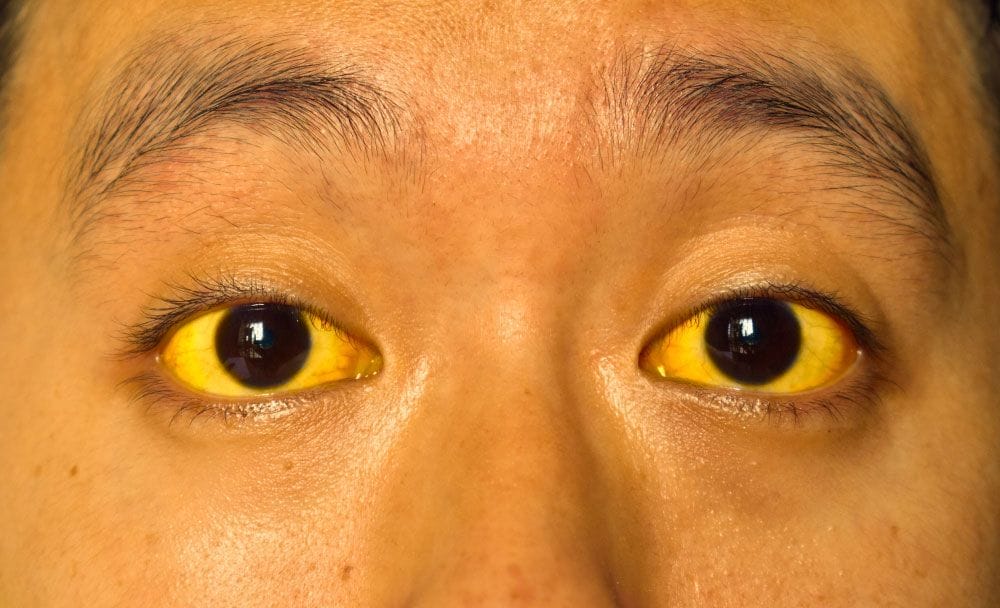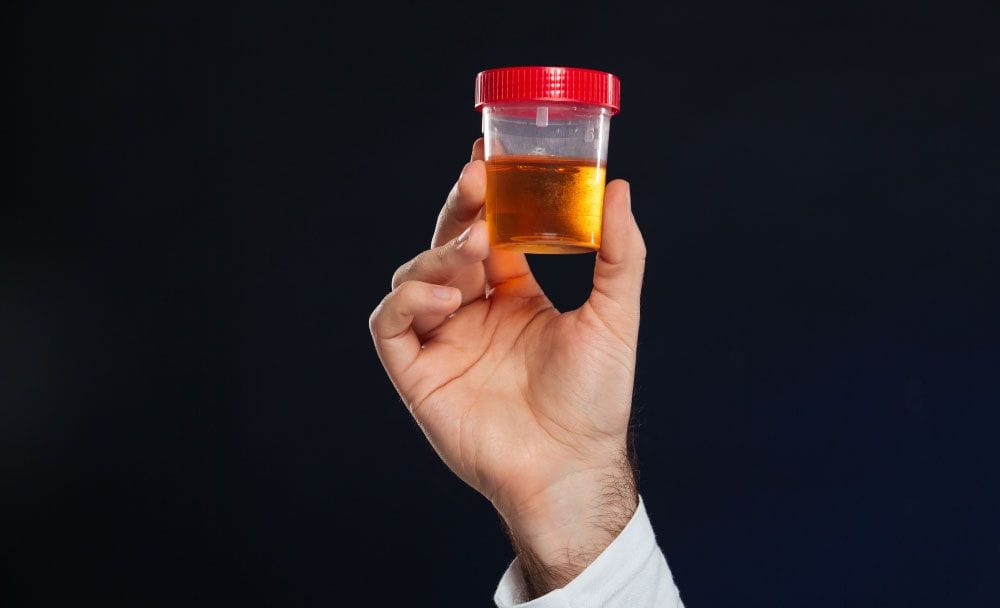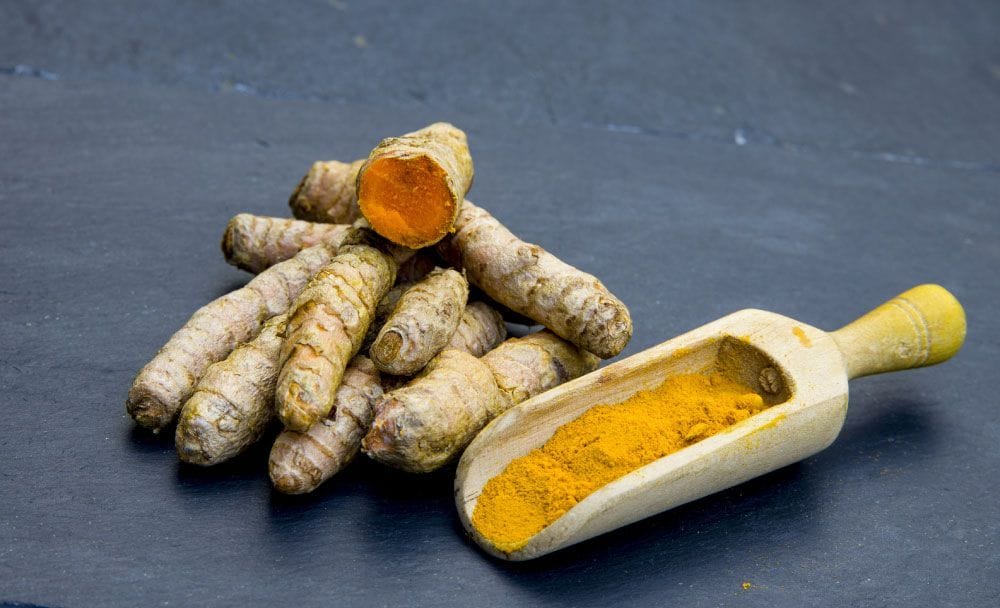Reviewed by Dr. Vipin Bihari Sharma
Jaundice is a medical condition that leads to the yellowing of the skin and eyes. Other symptoms like fatigue, nausea, and abdominal pain often accompany it. But what exactly causes jaundice? How is it diagnosed, and what are the treatment options available?
This article explores everything about jaundice, from its common symptoms and causes to the various diagnostic methods and treatment options. So, if you or a loved one has been diagnosed with jaundice or are simply curious to learn more about this condition, keep reading.
What is jaundice?
Jaundice occurs when there’s an excess buildup of bilirubin in the body. [1] Bilirubin is a yellowish substance formed when red blood cells and hemoglobin break down. [2] Under normal circumstances, the liver filters out bilirubin from the bloodstream and excretes it through the bile ducts, eventually ending up in the faeces. [2]
But when there’s too much bilirubin in the body, the liver can’t keep up with the demand, and the excess bilirubin accumulates in the blood, causing the skin and eyes to turn yellow. Jaundice is not a disease; it is instead a symptom of an underlying condition. [2]
What are the symptoms of jaundice?
The most obvious symptom of jaundice is the yellowing of the skin and whites of the eyes. [1] However, there are several other symptoms of jaundice in adults, depending on the underlying cause and the severity of the condition
1.Dark urine
It may look tea-colored. It is due to the excess bilirubin excreted through the kidneys and urine. In contrast, stools may become pale or clay-colored as the bilirubin is no longer excreted through the bile ducts and into the intestines. [1]
2. Fatigue
It can be due to the liver’s reduced ability to produce energy and the body’s increased metabolic demand as it tries to eliminate the excess bilirubin. [3]
3. Headache, intermittent fever, vomiting, and decreased appetite
These issues may also occur, especially if the underlying cause of jaundice is a viral infection or liver disease. [3]
Some people with jaundice may experience only mild symptoms, while others may require hospitalization and intensive treatment. If you experience any of these symptoms, look for medical attention immediately to receive appropriate treatment.
What are the causes of jaundice?
Many different factors can cause jaundice. The most common cause is an excess buildup of bilirubin in the body, but the underlying reasons for this can vary widely. [1] Here are some common causes of jaundice:
1. Alcohol-related liver disease
Alcohol-related liver diseases like hepatitis, cirrhosis, and liver cancer can cause jaundice by impairing the liver’s ability to filter bilirubin from the bloodstream. [4]
2. Pancreatitis
A swollen and inflamed pancreas can affect digestion and lead to jaundice. [4]
3. Blocked bile ducts
If the bile ducts become blocked due to a gallstone or tumor, the bilirubin cannot be properly excreted and builds up in the blood. [4]
4. Hemolytic anemia
This condition causes red blood cells to break down faster than normal, leading to a buildup of bilirubin in the bloodstream. [5]
5. Genetic disorders
Rare genetic disorders like Crigler-Najjar syndrome can cause jaundice by interfering with the body’s ability to process bilirubin. [6]
Jaundice Treatment – Diet and lifestyle changes to cure jaundice
Ayurveda enables several curable options for jaundice treatment to support healthy liver function and promote overall health.
1. Dietary changes
A decoction of curry leaf, fresh turmeric rhizome, and fruit rind of Terminalia Arjuna help cure jaundice. [7] Avoiding spicy, oily, and fried foods is also recommended, as they can aggravate the liver.
2. Herbal remedies
Herbs like Amla (Indian gooseberry), Amaranthus spinosus L., and Cissampelos pareira L. have been used to cure jaundice. These herbs can help reduce inflammation in the liver and promote overall health. [8] [9]
3. Panchakarma
Panchakarma is a traditional Ayurvedic detoxification therapy that helps eliminate toxins from the body. This therapy can be beneficial in treating jaundice, as it can help reduce liver inflammation and promote overall health. [10]
FAQs on Jaundice
1. What are the types of jaundice?
There are three main types of jaundice: hemolytic, hepatocellular, and obstructive.
2. What is neonatal jaundice?
Neonatal jaundice is a condition in newborn babies characterized by the skin and eyes yellowing due to high bilirubin in the blood.
3. What does a jaundice test detect?
A jaundice test measures the level of bilirubin in the blood, which can help diagnose jaundice.
4. What is physiological jaundice?
Physiological jaundice happens in newborn babies and typically disappears without treatment within a few weeks.
5. What are the foods to be avoided for jaundice?
It is generally recommended to avoid fatty, fried, and processed foods, as well as alcohol and caffeine, as these can put additional strain on the liver.
Conclusion
Seek medical attention if you experience jaundice symptoms. Prompt diagnosis and treatment will prevent complications and promote overall health. Whether you choose conventional medical treatments or explore Ayurvedic options, the key is to work closely with your healthcare provider to determine the best course of action for your individual needs.
With proper care and attention, most cases of jaundice can be successfully treated, allowing you to enjoy good health and vitality.
Disclaimer: The information provided here is not intended to replace professional medical advice or treatment.
References:
Jaundice. 12 February 2023
Physiology, Bilirubin. 12 September 2022
22-Year-Old Woman With Fever and Jaundice After Travel to Ghana.
Jaundice.
Hemolytic Anemia.
Crigler Najjar Syndrome. 12 September 2022
Ethnobotany of turmeric (Curcuma longa L.). 22 September 2011
Indian gooseberry (Emblica officinalis): Complete pharmacognosy review. March 2018
The treatment of jaundice with medicinal plants in indigenous communities of the Sub-Himalayan region of Uttarakhand, India.
Ayurvedic treatment outcome for Chronic Liver diseases.



















